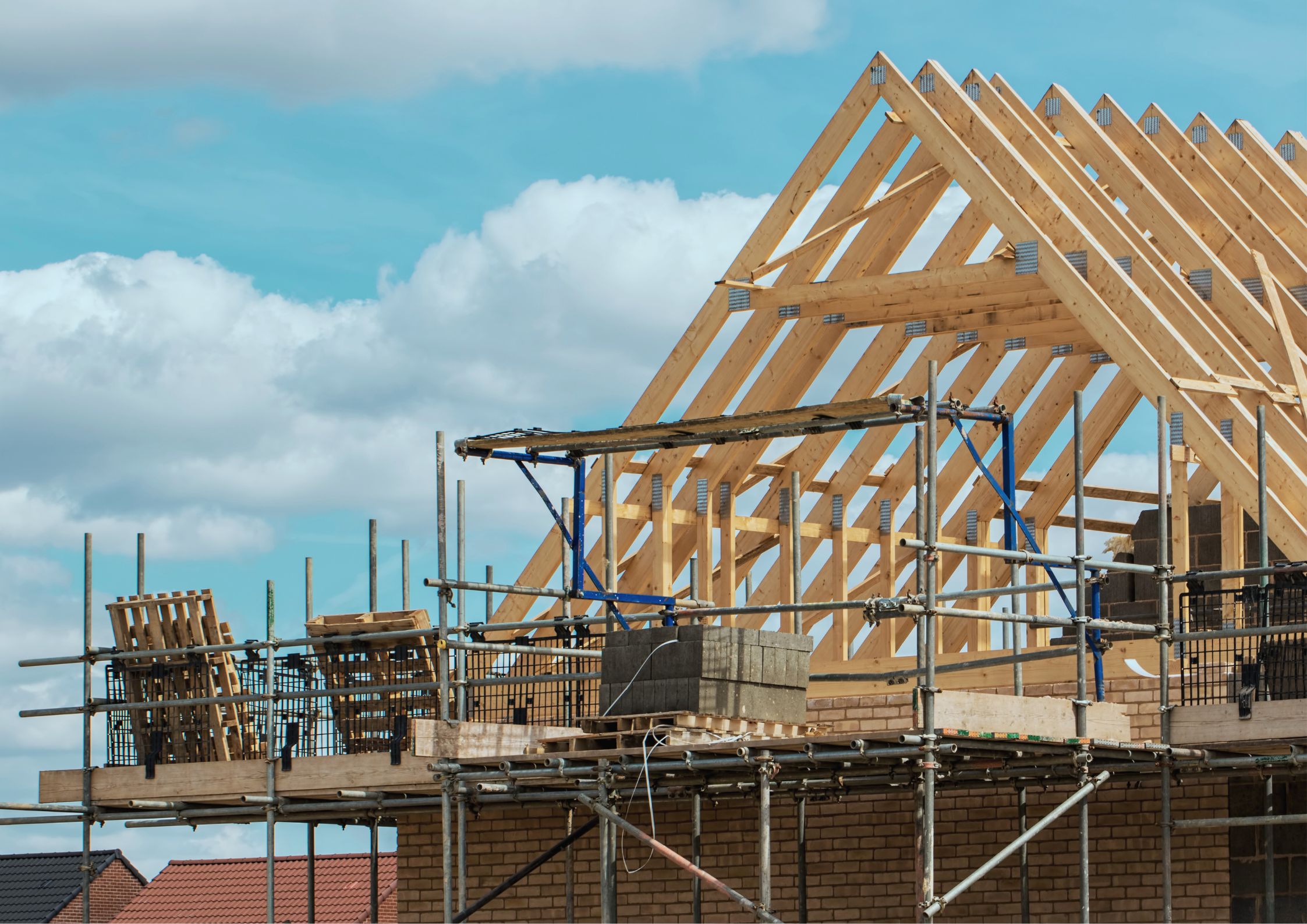Residential takes the reins as contract awards even out
- Awards see slight fall on the previous month but the residential sector bounces back from poor February.
- A continued positive trend in contract awards in Q1 suggests the sector is looking to emerge from doldrums of 2023.
- Lack of new applications suggests the crossroads have not yet been passed.
Construction contract rewards remained stable in March following a quarter which had showed a significant increase since the beginning of the year. The value of new contracts was 3% down in February and 1% down on the previous year but remained significantly above the last quarter of 2023, according to analysis from Barbour ABI.
Notably, residential contracts were up 60% in February, returning to heights seen in January and were up 62% over the first quarter of the year. Meanwhile, infrastructure fell back to more normal levels following a stellar February but remained 38% up on the same month last year.
A new student accommodation facility on Medlock Steet, Manchester will cost £200 million, whilst a new National Grid convertor station at Eastern Green will be built at a cost of £700 million. A new prison at HMP Gartree was also awarded at a cost of £300million. Wates will carry out the work which will commence July 2024.
Barbour ABI head of business and client analytics, Ed Griffiths commented:
“When looking across the first quarter of 2024 it has become clear that both the infrastructure and residential sectors have had strong starts to the year as businesses attempt to get projects off the ground, which is a positive signal the construction sector is attempting to emerge from the doldrums of last year.
“Interestingly in March, we saw Residential and Infrastructure swapping positions in terms of leading overall contract awards value with £2.4bn and £2bn respectively. Together they are pushing the industry awards upwards.”
Elsewhere Healthcare projects were subdued in March following two strong months and Economic conditions continue to stagnate the Hotel and Leisure Sector
[edit] Applications continue to confound recovery.
Planning applications have improved in February after a weak start to the year in January but activity levels in most sectors remain low, highlighting that nervousness remains in the sector to commit to future projects ahead of potential rates cuts and upcoming elections.
Infrastructure has increased 33% since last month and remains strong against its long-term average. However, it has not returned to the highs of the end of last year. Residential applications fell once again from £3.1bn in January to £2.9bn in February.
Griffiths continued: “The enduring story of 2024 so far has been the contradiction between a rise in contracts awarded, sometimes even for projects which have not yet been fully approved, and the continued lack of confidence shown in both in new applications and approvals - which have been contracting since last November. The industry stands at a crossroads where financial and political decisions made at a national level could tip the balance in either direction.”
Find out more at https://barbour-abi.com/
--Barbour ABI 09:43, 12 Apr 2024 (BST)
[edit] Related articles on Designing Buildings
- 2023 Spring Budget summary and industry response
- April turn for the worse, for construction, as market seesawing continues.
- Construction knowledge sources
- Construction industry statistics.
- Construction industry reports.
- Construction industry revs engines in January
- Infrastructure tumbles, adding to construction industry woes
- New energy rules, a threat to towns and cities across UK
- Planning Portal partnership boosts industry access to planning information.
- Risk management.
- Subdued planning environment figures provide scant hope for house-building targets
- UK Construction saw an £11.1bn fall in spending in 2023
Featured articles and news
Amendment to the GB Energy Bill welcomed by ECA
Move prevents nationally-owned energy company from investing in solar panels produced by modern slavery.
Gregor Harvie argues that AI is state-sanctioned theft of IP.
Heat pumps, vehicle chargers and heating appliances must be sold with smart functionality.
Experimental AI housing target help for councils
Experimental AI could help councils meet housing targets by digitising records.
New-style degrees set for reformed ARB accreditation
Following the ARB Tomorrow's Architects competency outcomes for Architects.
BSRIA Occupant Wellbeing survey BOW
Occupant satisfaction and wellbeing tool inc. physical environment, indoor facilities, functionality and accessibility.
Preserving, waterproofing and decorating buildings.
Many resources for visitors aswell as new features for members.
Using technology to empower communities
The Community data platform; capturing the DNA of a place and fostering participation, for better design.
Heat pump and wind turbine sound calculations for PDRs
MCS publish updated sound calculation standards for permitted development installations.
Homes England creates largest housing-led site in the North
Successful, 34 hectare land acquisition with the residential allocation now completed.
Scottish apprenticeship training proposals
General support although better accountability and transparency is sought.
The history of building regulations
A story of belated action in response to crisis.
Moisture, fire safety and emerging trends in living walls
How wet is your wall?
Current policy explained and newly published consultation by the UK and Welsh Governments.
British architecture 1919–39. Book review.
Conservation of listed prefabs in Moseley.
Energy industry calls for urgent reform.


























